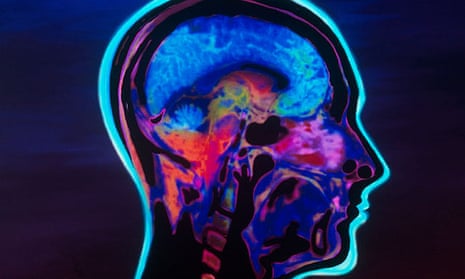Can watching short films featuring actors impersonating Charles Darwin and Albert Einstein improve your brainpower? Researchers working in 100 British primary schools will try to find out from September, thanks to a £290,000 grant from the Education Endowment Foundation to test whether instructing children aged 10 and 11 in “growth mindset”, an idea from American psychology, can improve results.
“Growth mindset” is the name given by psychologist Carol Dweck to the idea that intelligence can develop, and that effort leads to success. Her influential research, which has been lapped up by thousands of teachers in the UK, divides people according to what Dweck calls implicit theories of intelligence. If we think talent or braininess is innate and something we cannot change, we have a “fixed mindset” (blamed by Dweck for the Enron scandal, among other ills). If we believe our performance at school and in life can be changed by our attitude, and particularly by how we cope with setbacks, we have a “growth mindset”. The British study, called Changing Mindsets, will test its effectiveness using videos and quizzes developed by education company Positive Edge in year 6 classrooms, while psychologists will train teachers for one day.
“Expectations change neurology; if you have low expectations of a child their brain starts to function worse,” says Sherria Hoskins, the Portsmouth University professor leading the study. “We’re not saying you can turn a child who is struggling at maths into a maths genius. The message is about getting better.”
The videos feature actors playing Darwin, Einstein and Olympic athlete Wilma Rudolph, describing their achievements in ways that emphasise a growth mindset. “There was nothing special about my intellect,” announces Darwin. “The ability to change and adapt has been key to our existence.”

The study will look at what Hoskins calls “learning behaviour” as well as attainment, meaning how children manage themselves and whether they learn from mistakes. But the results will depend on Sats scores, and whether the pupils who receive the training and watch the films do better than a control group who do not.
“It’s about the language you use with pupils,” Hoskins says. “Instead of praising them around ability or static factors related to who they are – for example, saying ‘you’re so good at drawing’ – you move to feedback based on effort, strategy and results. Many people don’t realise praise can be dangerous.”
While there is widespread support for the principle of evidence-based policy, and for an approach that promotes trying over talent, growth mindset itself is a topic of heated debate. Last year Dweck was reported to be concerned about growth mindset “misuse”, and told Schools Week she was kept awake at night by the fear that mindset was becoming “the new self-esteem” – an idea bandied about by teachers who had not properly understood it and used it to “make kids feel good about any effort”. Hoskins says she is frustrated by the extent to which views are polarised, with mindset viewed either as a magic wand or a fad.
This may sound overblown if you have never heard of growth mindset, or Dweck, but it took time for ideas about self-esteem and mindfulness to find their way into everyday life too. Becky Francis, newly appointed director of the Institute of Education and adviser to the education select committee, says the notion that anyone can improve with application and high expectations is positive, and he points to the correspondence between Dweck’s work and knowledge gleaned from sociology.
“There’s a lot of evidence about teachers bracketing students from particular backgrounds, and how attainment can be a self-fulfilling prophecy,” she says. “Since the 1960s we have known that kids put in low-ability groups get the message very quickly.”
Others welcome the injection of ideas about how children learn at a time when the curriculum is becoming less focused on skills and more on knowledge. Peter Fonagy, professor of psychoanalysis at University College London, says: “The idea that we can help people develop, that we are not bound by social or biological constraints, frees up the brain as well as the system.” He cites John Hattie’s finding that teachers’ grasp of their pupils’ problems is crucial. “Communication is enormously important. Psychology, or one human’s understanding of another, enormously enhances the learning experience.”
Thomas Westenholz, the Danish businessman behind Positive Edge, says he regrets the extent to which the trial featuring his videos and quizzes is tied to academic results. “There’s a complete obsession with testing in this country,” he tells me. “My interest is in improving long-term wellbeing, not a narrow focus on grades, but it is not possible to get funding for this.”
Westenholz, whose previous venture was a company specialising in claims for mis-sold payment protection insurance, traces his own interest in growth mindset to when his newborn son was dangerously ill, and he and his wife refused to accept a bleak prognosis. “I saw in hospital how parents struggled who didn’t have a growth mindset,” he explains. “It’s about building resilience: how do you deal with things when they get really tough?”
Whatever his private motives, Positive Edge markets itself as a tool to boost results and shrink the gap between wealthier and poorer pupils. Its website claims “Growth mindset naturally creates what Ofsted wants”, asserts that the key issue for disadvantaged students is often “negative attitude”, and even suggests a report showing “how your pupil premium spending is impacting achievement”. While Hoskins, listed on the website as an adviser, is more cautious, she too suggests that mindset training could be targeted either at children who are struggling academically, or who are eligible for free school meals (and additional funding).
Since the foundation supporting the research was created with the aim of narrowing the attainment gap, this emphasis is no surprise. But it is cause for concern to those who are sceptical about the growth mindset approach, because they fear it risks becoming another way of blaming poor pupils for their lack of progress.
Matt O’Leary, an education lecturer at Birmingham City University, tweeted how “farcical” it was that his six-year-old daughter was being graded on her attitude to learning. While he believes children are influenced by continuous putdowns, he says the idea of schools grading attitude is “very worrying”. He also fears that, far from cutting against the grain of increased testing and hierarchies, mindset could become yet another thing children are assessed on.
David James, professor of social sciences at Cardiff and editor of the British Journal of Sociology of Education, takes this critique further. While he says “it’s great to dwell on the fact that intelligence is not fundamentally genetic and unchangeable”, he believes the limitations of mindset outweigh its uses.
“If teachers are being rewarded on the basis of whether they get a few kids over the ‘C’ borderline this year, it’s very naive to come along and say ‘you need to change the way your kids think about themselves’. It individualises the failure – ‘they couldn’t change the way they think, so that’s why they failed’.”
James questions why the new study is needed when a previous one, in 2013, showed no statistically significant effect, and suggests there is “a bit of desperation” to unearth evidence that anything other than inequality explains the attainment gap. He believes the search for individually focused explanations is what lies behind the current interest in “character” and argues that psychology, with its quizzes and carryover into self-help, has more popular appeal and is more to current policymakers’ tastes than sociology, with its structures and systems.
Francis, meanwhile, suggests a connection between mindset, coaching and a broader movement towards individualised problem-solving, “when of course a lot of our problems are structural and institutional”. But she thinks mindset could prove a useful tool, for example in tackling what she calls the very British phenomenon of giving up on maths. Westenholz calls it a “small piece of a much bigger puzzle”, while UCL’s Fonagy emphasises the importance of influencing teachers if it is to have any effect.
No one I spoke to denied that evidence exists showing mindset to be a factor influencing learning. Doubts centre on whether similar results will be obtained in English schools.
Will the films’ dramatic stories, stirring music and inspirational messages have any demonstrable effect on the children who see them? All will be revealed when the study’s results are published in 2018.

Comments (…)
Sign in or create your Guardian account to join the discussion